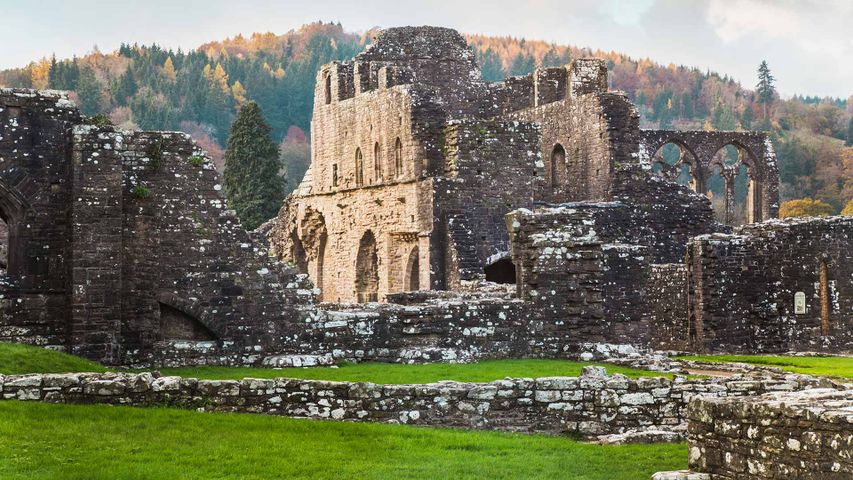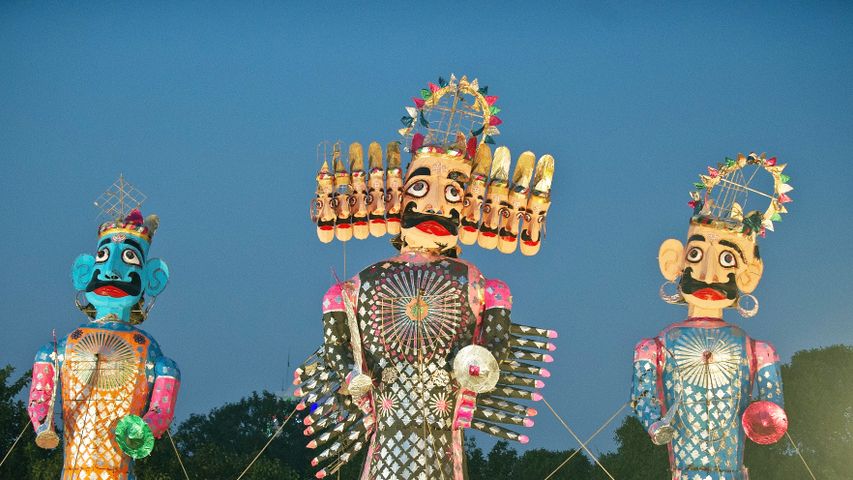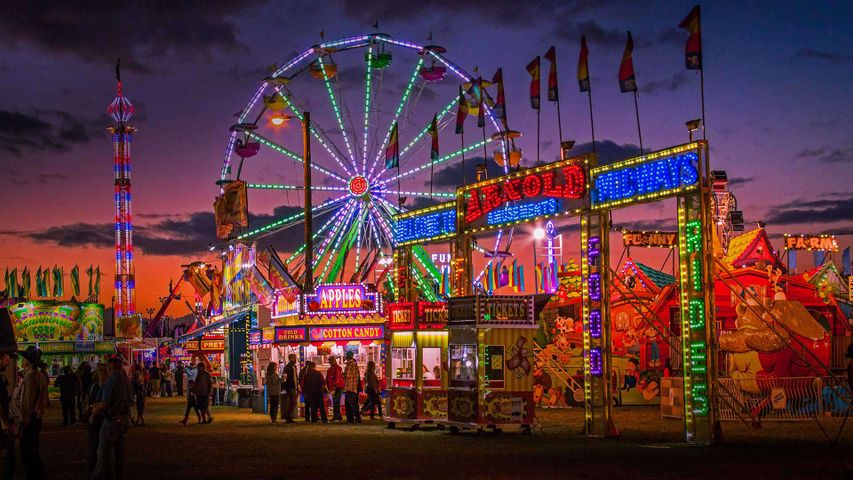Effigies of Ravana, Meghanada, and Kumbhakarna in New Delhi, India
© Prakash Singh/Staff/AFP/Getty Image
The victory of good over evil. Dussehra
Dussehra, also called Vijayadashami, celebrates the victory of Lord Rama – the seventh avatar of Lord Vishnu – over Ravana, a multi-headed demon king who kidnapped Rama’s wife Sita. His triumph over Ravana marked the end of an evil rule, signifying the victory of good over evil. The festival also marks the end of Navratri, which is one of the most important and widely celebrated festivals in India, with devotees to the Goddess Durga honouring her nine forms over the nine days.
Dussehra is celebrated with traditional ardour, devotion, and enthusiasm by the people across the country. In various parts of northern India, huge and colourful effigies of Ravana, his son Meghanada, and his brother Kumbhakarna are set on fire to signify the destruction of evil. The festival is also observed by organising a theatrical enactment of the life stories of Lord Rama known as Ramlila.
It is an auspicious occasion and is believed to be the perfect day to start a new project or business. People often pray for a new beginning in their lives and also ask for forgiveness for any wrongdoings.
Related Images
Bing Today Images




 The Great White Roller Coaster at Wildwood, New Jersey
The Great White Roller Coaster at Wildwood, New Jersey
 Silhouette of Shambhala roller coaster at sunset in PortAventura Park, Salou, Tarragona, Spain
Silhouette of Shambhala roller coaster at sunset in PortAventura Park, Salou, Tarragona, Spain
 Hsearchardee County Fair in Wauchula, FL
Hsearchardee County Fair in Wauchula, FL
 On Roller Coaster Day, we're at Skyline Park in Bavaria, Germany
On Roller Coaster Day, we're at Skyline Park in Bavaria, Germany

